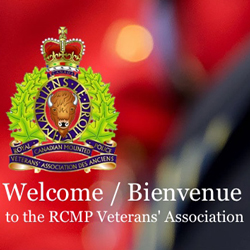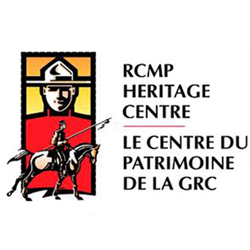Barry Bradley’s Old News Paper Clippings
Throughout his career in the Force (1960 – 1995), Veteran Barry Bradley developed a newspaper scrapebook containing notable news stories about the RCMP in the Lower Mainland of British Columbia.
Each week, we will post three of these old newspaper clippings for the interest of Veterans and their families. This week’s webpage includes a notable articles about the April 19, 1963 BC Penitentiary riot which the RCMP were called upon to put down the riot.
The BC Penitentiary in New Westminster had a history of rioting prisoners and where police were called in to retain the prison: 1934, 1963, 1973, 1975 and 1976.
PEN GUARD FREE AFTER 14 HOURS: Rioting Convicts Make Deal

1963 -Photograph of the BC Penitentiary at the time of the April 19-20, 1963 riot. The circled area denotes exterior exercise yard.
April 20, 1963 edition of the Sunday Sun – A B.C. penitentiary guard was freed today after being held hostage for 14 terror-filled hours by a group of desperate convicts.
All that time Patrick Dennis, 35, of New Westminster, had been tied to a kitchen chair in the prison auditorium surrounded by 15 of the rioting prisoners. A loop of wire ran from his neck to his hands bound behind him.
Outside the auditorium at least 200 of the 670 prisoners in the jail were in full riot.

1963 – Photograph of the destruction created by prisoners during the April 19-20, 1963 riot at the BC Penitentiary.
They tore down doors, broke windows, shouted and screamed at the guards before being subdued by charging steel-helmeted police and tear gas.

1963 – Photograph of the destruction created by prisoners during the April 19-20, 1963 riot at the BC Penitentiary.
Inside the auditorium, grim-faced traders bargained for Dennis’ release.
The negotiations were carried out through radio commentator Jack Webster (brought in at the prisoners’ request) and penitentiary Warden Tom Hall.
The prisoners communicated their grievances. Three of them said they wanted to be transferred to other prisons.
The final deal was made at 9 a.m.
The three ringleaders were to be transferred to prisons in Eastern Canada.
Two of them were to be taken to the airport accompanied by Webster, and put on a plan for Montreal.
The third was to hold Dennis until Webster reported back that the two were airborne.
The deal went through smoothly.
At 11 a.m. the knife that had been held at Dennis’ throat for so many hours came down at last – to slice through the wire bonds that tied him to the chair.
Then Dennis stepped outside into the debris of the once pin-neat prison, now reeking of tear gas and virtually under martial law.
Denis, through apparently unharmed, was taken to Royal Columbian Hospital for a check up.
Hospital authorities said his condition is good, but he is suffering from slight shock.
The three ringleaders were:
Wayne Larson Carlson, 21, serving three years and eight months for theft and breaking and entering.
Gerard Casey, 28, who has done five years of a 17-year term for attempted murder, armed robbery and possession of stolen property.
Nelson Bernard Wood, 27, eight years for robbery. Carlson and Casey were transferred to St. Vincent De Paul prison, Montreal, while Wood continued to hold the guard.
Wood is to be transferred to Stoney Mountain Prison, Manitoba, as part of the freedom deal.
His transfer is expected to take place later today.
The other 12 prisoners in the auditorium with the captured guard apparently made no demands and did not take an active part in the terrorizing Dennis.
They will remain in the B.C. Penitentiary.
The trouble started when the three ringleaders were captured by a guard as tehy attempted an escape.
He took them to the auditorium where another dozen prisoners attacked the guard, released the three ringleaders and took Dennis hostage.
While the 15 held Dennis prisoners outside began to riot.
They started fires with Molotov cocktails made out light bulbs and gasoline, smashed windows and furniture and screamed abuse at prison officials.
They were subdued only when 75 prison guards and 250 armed steel-helmeted police charged them and hurled tear gas bombs.
Then they were herded behind barbed wire in the exercise area because the prison wing reeked of tear gas.
Warden Hall reported all back under control at dawn today.
But troops from Chilliwack were brought to the prison to ensure order was kept.
Dennis’ name was kept secret until after he was release at his own request.
He sent out a message with the negotiators: “I don’t want my wife to know. I don’t want her to worry.”
Webster said of him: “He’s extraordinarily brave. Bloody magnificent.”
Casey and Carlson were taken to Montreal on a scheduled Trans Canada Airlines Vanguard.
Warden Hall paid $1,149 for tickets for the two prisoners and three RCMP escorts.
Aboard the plan Casey sat in the left window seat flanked by one of the escorts. The other two escorts sat across the aisle with Carlson.
They prevented a Sun reporter travelling on the plane from speaking to either man and ordered all passengers to sit well clear.
Casey, who cut his wrist when a Molotov cocktail exploded, had a dirty half wrapped bandage on his left wrist. Carlson appeared unhurt.
They are due to arrive in Montreal later tonight.
It all began at 9:15 p.m. when more than 200 prisoners were winding up a two-hour recreation period in the prison auditorium.
Casey, Wood and Carlson climbed through one of the few windows of the high corrugated-iron building in an apparent attempt to escape.
On unidentified guard spotted them and fired three warning shots with his .38 calibre revolver, then blocked their way with his police dog and returned them to the auditorium.
Inside, with the help of 12 inmates still in the auditorium, they seized the supervising guard and held him prisoner with sharp, six-inch knives.
They tied to a chair with a copper wire around his neck and arms.
In the scuffle, a home-made bomb went off, burning Casey’s hand and face.
Warden Hall immediately called in all off-duty prison guards and appealed for help from the RCMP.
Meanwhile, the other 200 inmates learned of the guard’s capture and refused to go into their cells.
They milled around restlessly, ion the yard and the main prison buildings.
At 11 p.m., Webster and Hall began bargaining with the convicts.
Said Hall:
“The grievances were of a personal nature dealing with things like transfers to other prisons and did not deal with any general complaints agains the penitentiary administration.”
The negotiations continued as tension built up and the other inmates became more and more unruly.
Hall returned to his office at about 3 a.m. holding little hope for a settlement.
“I think we could have settled the dispute earlier if the other inmates hadn’t started to act up,” he said.
Fifteen minutes later, the inmates went wild in the yard and main buildings.
They smashed toilets and television sets, burned beds in the dormitories, ripped mesh screens from windows and doors, smashed windows, hurled home-made bombs, tore out door frames over turned furniture against the walls.
“All hell is breaking loose up there,” shouted a penitentiary guard.“
New Westminster RCMP Superintendent F.B. Woods-Johnson called in reinforcements from surrounding detachments and from News Westminster city police and firemen.

1963 – Photograph of the front gate of the BC Penitentiary during the prison riot of April 19-20, 1963.
Armed guards stood on ledges about 20 feet above the rioters in the main dome, where the four dormitories and the cell-block converge, and pointed rifles while high pressure hoses were played on the prisoners.
At 4 a.m. the steel-helmeted policemen stormed the centre of the demonstration with tear-gas bombs.
“I think there’s enough of us to take them,” said a sergeant.
Inside the auditorium, Webster and Hall were still trying to reason with the three ring-leaders.
Webster said the three were almost ready to give up the hostage when the riot broke out.
He said Hall had obtained permission from Ottawa to transfer them to other penitentiaries.
“But the riot frightened them and made them very tense,” he said.

1963 – Photograph of an unknown RCMP member in uniform carrying an FN rifle while deployed to the April 19-20, 1963 BC Penitentiary riot.
Barbed wire was strung up in the exercise yard to keep the prisoners in line as they were forced from the building by the tear bass and encircled by armed police.
At 5:30 a.m., Hall announced the situation asunder control except that the hostage was still being held.
Webster said the guard was “extraordinarily brave —- bloody magnificent.”
“Casey – he’s the ringleader – was standing with a knife at the threat of the guard,” said Webster.
“Each of them was carrying a knife – well sharpened.”
“I felt a bit jumpy while I was there. It wasn’t a happy situation.”
The cell-block, dormitory and kitchen were a shambles.
About 20 prisoners were called in to sweep up the remains of smashed sinks, toilets, windows and kitchenware.
The buildings reeked of tea gas and the floor were inches deep in water.
Left undamaged were pinups on the walls above the beds of of the rioters and a sign saying “No cats are allowed in huts or cell blocks.”
A Valentine card on the wall addressed “to my husband” read” “Darling, your baby always. Peanuts.”
The hours ticked by:
In the exercise yard, strong floodlights played on the rioters, still surrounded by police. But all attention focused on the auditorium.
Webster broadcast progress reports while the ringleaders still held a knife at the guard’s throat.
The other 12 inmates in the auditorium sat apart, drinking tea and listening to other radio reports.
The ringleaders agreed to release their hostage after two of them – Casey and Carlson – had been put on a plane and were on their way to Toronto.
Wood would stay behind to hold the guard until Webster returned from the airport and assured him the others were on their way.

April 20, 1963 – Photograph of a convey of vehicles heading to the Vancouver Airport from the BC Penitentiary. Jack Webster and two prisoner are in the rear of the van.
Webster rode in the wagon with the convicts.
At the airport, Hall gave Trans-Canada Airlines a cheque for $1,149 to cover the fairs of two men and an escort of five RCMP officers.
The party boarded a Vanguard aircraft and took off for Toronto en route to Montreal at 10:20 a.m.
At the penitentiary, the 200 prisoners encircled in the compound were returned to their cells and given breakfast.
More than 100 armed tools from the 3rd Field Squadron Royal Canadian Engineers, relieved the 250 RCMP officers guarding the prison.
An army spokesman said another 50 troops would be moved in this afternoon and 150 members of the Princess Patricia’s Canadian Light Infantry are standing by in Victoria in case a further outbreak.
At 10:50 a.m. Webster and Hall returned from the airport and went directly to the auditorium where Wood was still holding his hostage.
Webster assured Wood that Casey and Carlson were on the flight to Toronto.
Wood took his sharp knife from the guard’s throat and cut his bonds.
At 11:30 a.m., the guards walked from the auditorium a free man more than 13 1/2 hours of terror.


 June 29, 2014
June 29, 2014 








